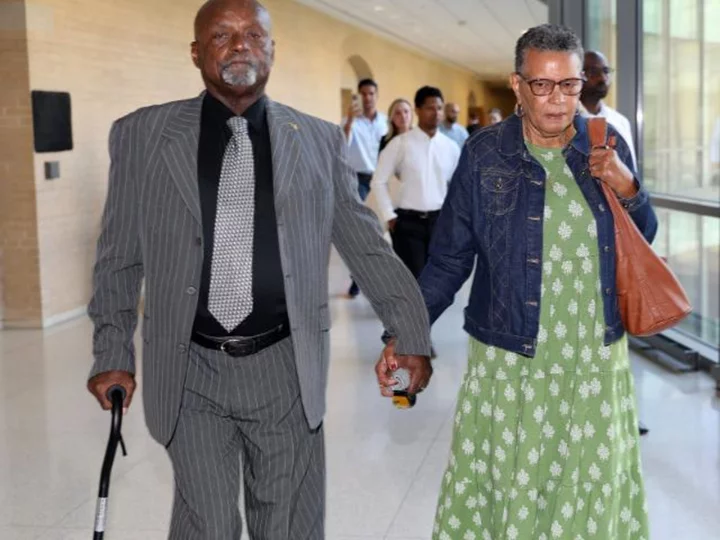Nearly five decades after he was wrongfully convicted of rape, a New York judge has overturned the conviction of Leonard Mack following new DNA testing that eliminated him as the perpetrator and identified a different man who has since confessed to the crime, prosecutors announced.
Mack, 72, served more than seven years in New York prison after a jury found him guilty of a 1975 rape of a high school girl in Greenburgh and a related weapons charge, according to the Westchester County District Attorney's Office.
After opening a review of Mack's claim to innocence last year, the district attorney's office conducted DNA testing that "conclusively excluded" Mack as the rapist and also found that the initial investigation and prosecution relied on eyewitness identifications that were "tainted by problematic and suggestive procedures used by the police," the office said in a release.
Mack, whose exoneration fell on his 72nd birthday, said that he never lost hope that his innocence would be proven.
"Today has been a long time coming. I lost seven-and-a-half years of my life in prison for a crime I did not commit and I have lived with this injustice hanging over my head for almost 50 years," Mack said in a statement provided by the Innocence Project, an organization that works to exonerate people who are wrongfully convicted and brought Mack's case to the DA.
"Now the truth has come to light and I can finally breathe. I am finally free," he said.
Mack is a Vietnam War veteran and has lived with his wife in South Carolina for nearly 21 years, according to the Innocence Project. He said the wrongful conviction irrevocably impacted his life.
"It changed the course of my life — everything from where I lived to my relationship with my family," Mack said.
Based on its knowledge of similar cases, the Innocence Project said Mack's wrongful conviction is the longest to be overturned based on new DNA evidence.
Investigators were able to match the new DNA test results to a Westchester man who had been convicted of a separate rape in 1975 and another sex crime in 2004, the district attorney's office said. When interviewed by an investigator, the man confessed to the 1975 Greenburgh rape, the release said.
Due to New York's statute of limitations the new suspect cannot be prosecuted for the 1975 crime, but he is currently in custody and being prosecuted for failing to register as a sex offender related to the 2004 sex crime, according to the district attorney's office.
Westchester County District Attorney Miriam E. Rocah credited the discovery of Mack's innocence to his "unwavering strength fighting to clear his name for almost 50 years."
"This exoneration confirms that wrongful convictions are not only harmful to the wrongly convicted but also make us all less safe," Rocah said in a statement last week.
The 1975 case
On May 22, 1975, a man held two high school girls at gunpoint and tied them up in a wooded area of Greenburgh, New York, according to the Innocence Project. The man raped one of the girls twice before fleeing the scene, leaving the other girl to break free and run to a nearby school where a teacher called the police, the organization said.
The Greenburgh Police Department searched for a suspect described as a Black man in his early 20s, with close cropped hair and a clean shave, carrying a handgun and wearing black pants, a tan jacket, a black hat with a white brim and a gold earring in his left ear, according to the Innocence Project.
About two hours after the rape, a police officer pulled over and arrested Mack, who was wearing a black fedora and a gold earring in his left ear. The officer said he found a revolver in Mack's car and that Mack fit the suspect description, though his clothing did not match the victims' description, according to the Innocence Project.
The victims, one of which was legally blind, later identified Mack through a series of "problematic identification procedures," including photo arrays and lineups, according to the Innocence Project.
"Eyewitness misidentification, as in this case, is the leading contributing factor of wrongful convictions and has contributed to 64% of the Innocence Project's 245 exonerations and releases," the organization said.
A study of more than 3,000 exonerations since 1989 showed that Black Americans are seven times more likely than white Americans to be falsely convicted of serious crimes, according to a 2022 report by the National Registry of Exonerations.

